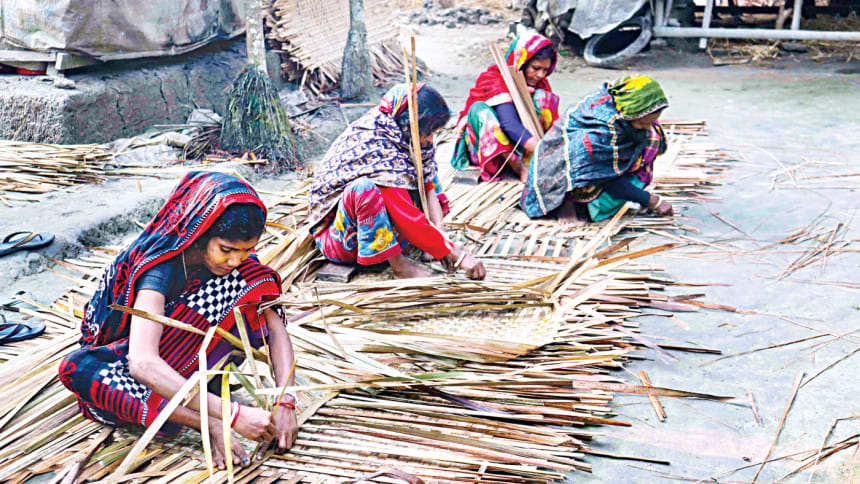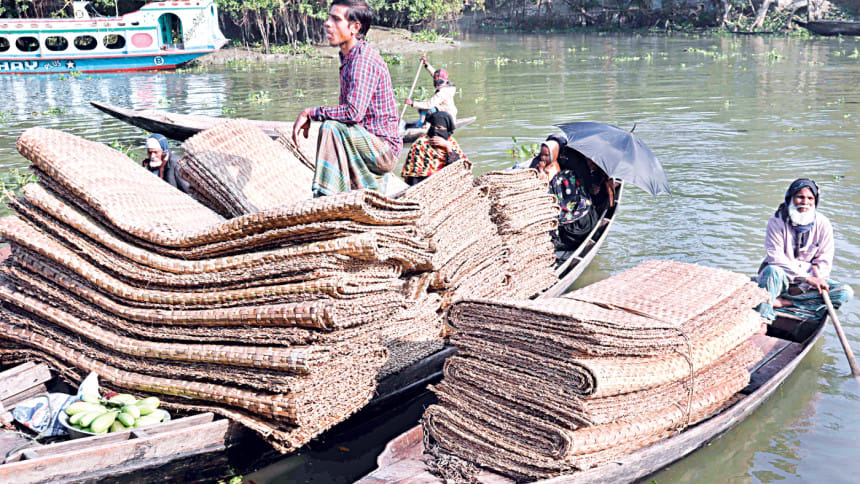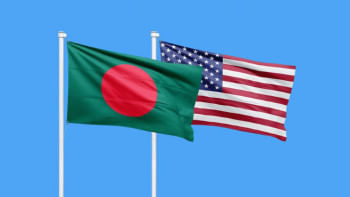Small income, big contribution

Getting up from bed early in the morning, Sabitri Halder goes to her backyard and takes a seat on the floor to weave floor mats from hogla leaves, a species of aquatic grass.
She keeps working until the sun gets hotter. In the afternoon, she again gets back to make the items.
Like her, at least 2,000 women from low-income families in five unions in the district's Nazirpur upazila produce floor mats from hogla leaves grown in the marshland.
"Almost every house in our village make mats from hogla leaves," said Sabitri, a resident of Modhubhanga village of Gaokhali union in the upazila.
After doing all the household chores and taking care of the family members, several women sit together to make the mats. They can weave four mats a day.
Each mat is around seven feet long and more than five feet wide.
In the local wholesale market, each floor mat is sold for between Tk 60 and Tk 80, allowing an artisan to make a profit of Tk 130-150 a day.
This source of income helps the artisans meet family expenses such as paying for their child's tuition fees and buying clothes for family members.
In order to make floor mats, weavers have to buy the leaves from wholesalers or collect them on their own from the marshland.
"We buy one bundle of hogla leaves at Tk 110-120," said weaver Mamata Halder. Weavers can make four mats from a bundle of leaves.
Artisans remove the backside of them to make them soft. After the weaving is complete, they have to make the border, said Radha Halder, another weaver.
She says the male members of families also come to their aid, buying the leaves from the market and selling the floor mats. Female students also help their mothers in making mats.
"Before going to school in the morning, a girl can make one mat," said Rekha Halder, also a weaver.
After returning from school or college, they also sit with their mothers in the afternoon. But as the educational institutions remain closed, they help their mothers almost all day.

Traders buy floor mats from weavers in the villages and sell them at the only wholesale market in the upazila located in Gaokhali bazaar, which sits every Saturday and Tuesday.
Weavers also sell floor mats in the haat themselves after carrying them either in small boats or three-wheelers. Wholesalers buy and supply them to various parts of the country through water vessels.
On every haat day, about 20,000 pieces of floor mats are sold, according to wholesaler Md Belayet Hossain.
Floor mats are used in construction sites, at religious institutions and public gatherings, he said, adding that the business has been experiencing its worst period due to the coronavirus pandemic for the last two years.
Although long hours spent to make mats leave artisans with back pain and troubled sleep, weaver Nomita Halder, said with a smile: "We are happy to contribute to the family."

 For all latest news, follow The Daily Star's Google News channel.
For all latest news, follow The Daily Star's Google News channel. 



Comments